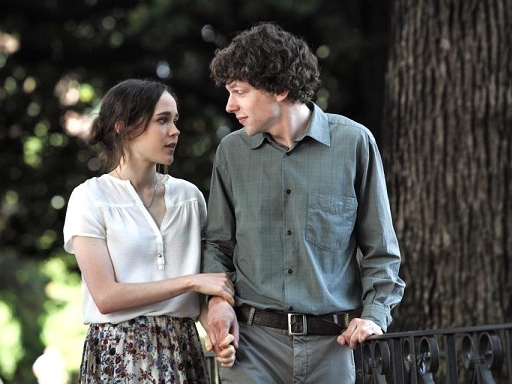Most 75 year old men are well into retirement, kicking back on the golf course, couch or patio. But Woody Allen is still working as hard as ever: producing, writing, directing and sometimes even acting in at least one film a year.
And the amazing thing is that he is more popular than ever, having just scored the biggest box-office hit of his career with last year’s “Midnight in Paris” to go with yet another Oscar for the film’s screenplay.
Now he’s back to take on another illustrious European city in “To Rome with Love,” continuing perhaps the most vibrant stage of his career since the late-’70s one-two punch of “Annie Hall” and “Manhattan.”
“Rome” is almost purely played for laughs and is generally farcical in tone, following an all-star cast whose stories interweave through either ridiculous romantic misunderstandings or multiple sly takes on fame, celebrity and its consequences.
It moves with genuine zip and pizzazz, often set to the bouncy tune of an Italian-pop dance instrumental, which itself is a surprise twist on Allen’s usual use of jazz and Tin Pan Alley era songs.
Among the lead characters are a newlywed Italian couple (Alessandro Tiberian and Alessandra Mastronardi) who get lost from each other just as the groom’s relatives are coming to visit. As the wife is lost in the streets trying to find a salon to primp herself in, the husband gets a surprise visit from a hooker (Penelope Cruz) who says she’s been bought and paid for as a gift – a gift for an obviously different man.
But when his relatives burst in early, he realizes they haven’t met his bride before, and so he asks the hooker to pretend to be his wife, leading to a series of hilarious misunderstandings. Meanwhile, the man’s wife finds a movie set in action and is nearly seduced by a male movie star.
And in another corner of Rome, a young American architect (Jesse Eisenberg) who is living with a long-time girlfriend (Greta Gerwig) has to fight temptation from a seductive friend of hers (Ellen Page) at the same time he encounters his favorite architect hero (a superb Alec Baldwin) and befriends him on his escapades around the city.
All the while, Baldwin’s character – who starts to appear magically, as if he’s the young architect’s conscience – keeps trying to warn him not to fall into a fling with Page’s character.
The final main plot threads are both smart and funny, qualities that are no surprise to find in an Allen film but are especially cherished amid the dumbed-down summer-movie season. Roberto Benigni (“Life is Beautiful”) plays an average man who wakes up to find paparazzi and media following him on literally every step of his life, making him a celebrity for no apparent reason, while Allen plays a former avant-garde opera director who has come to Rome to meet his daughter’s beau and instead winds up transfixed by her beau’s father’s singing voice.
Convinced he can make one last shot at operatic success, Allen’s character tries to convince the man to sing opera publicly. But the catch is, he can only sing that well in the shower, a fact that leads to a string of hilarious plot twists.
Fast-paced, witty, smart and with a wise skepticism about the nature of modern-day celebrity, “To Rome with Love” is a film to be treasured. The sexual innuendos and implications are mild enough for a PG-13 film, but their frequency earns the film an R rating. But there are plenty of perfectly innocent laughs to be had and even some room for thought about the nature of fame and its pitfalls, which is the underlying theme of the film.
Combined with glorious scenery and a whimsically enjoyable musical score, there is very little here that would be likely to offend discerning adults deeply, especially those who are fans of Allen’s style of comedy.
For my money, it’s even better than his Oscar-winning “Paris,” because that film too often felt like a highbrow version of “Night at the Museum,” with its near-constant procession of famous literary figures being trotted out for five or 10 minutes of jokes apiece. “Rome” is more surprising, and in its underlying exploration of the impact of modern fame, a more relevant experience as well.

COMMENTS
Please let us know if you're having issues with commenting.